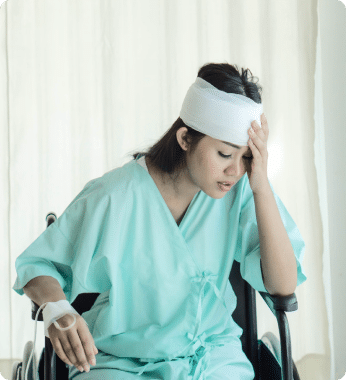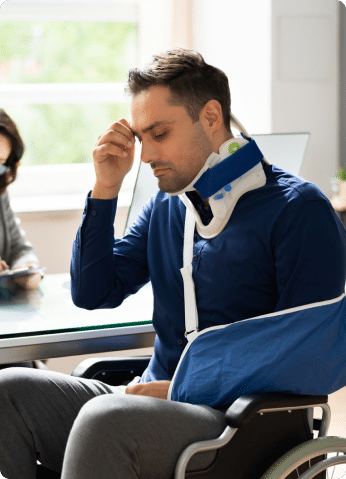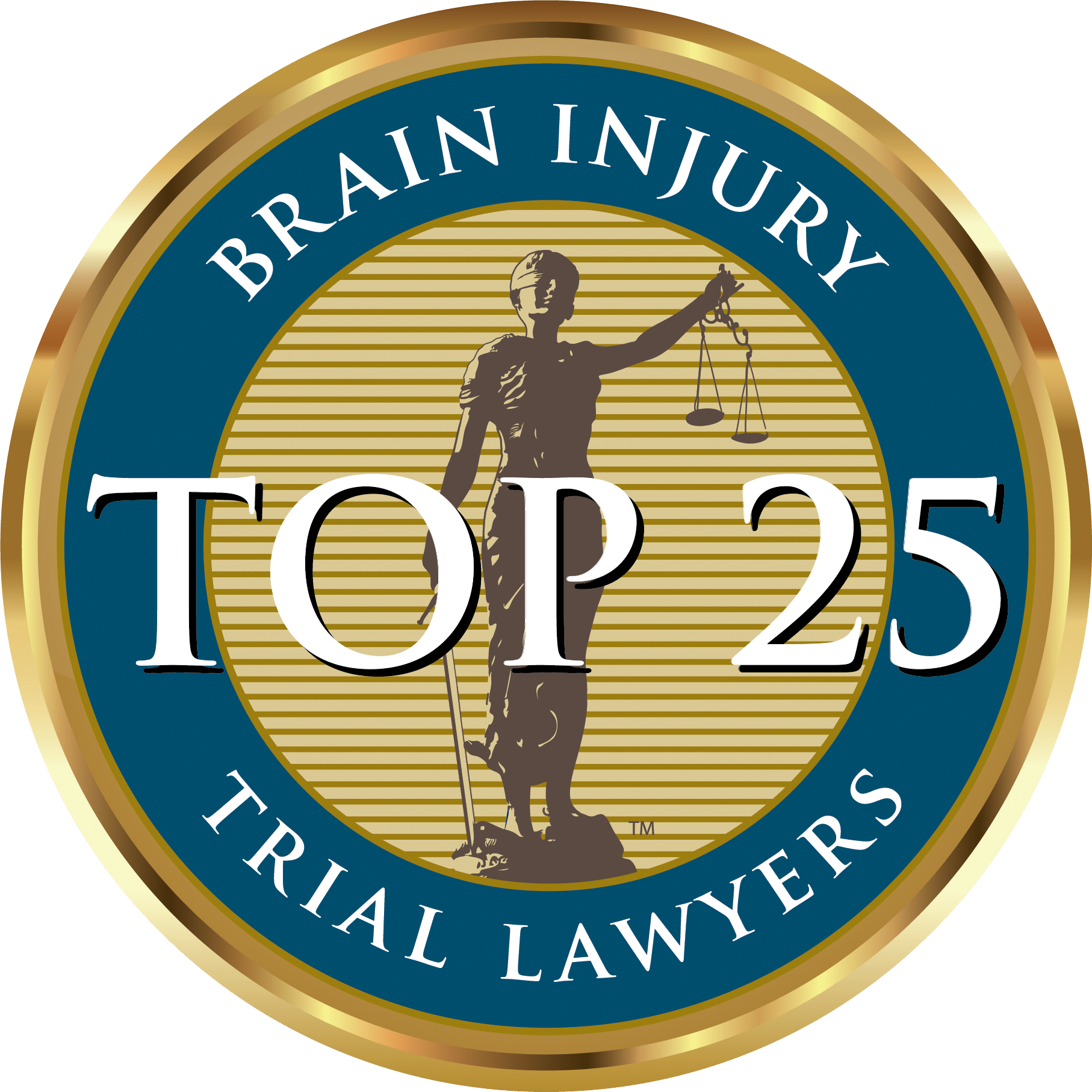Brain Injury Awareness Month
March is Brain Injury Awareness Month. The attorneys at Cordisco & Saile LLC understand the life-changing effects of a brain injury because of the negligence of others. We mark Brain Injury Awareness Month by bringing awareness, discussing ways to prevent injury, and reflecting on how we can advocate on behalf of individuals that have suffered from a traumatic brain injury.
The brain injury lawyers at Cordisco & Saile LLC recognize Brain Injury Awareness Month. We are passionate about raising awareness and advocating for individuals with brain injuries.
Brain injuries can have severe short- and long-term effects from which an individual may not be able to recover fully. By sharing more information about brain injuries, we seek to raise awareness about its effect on everyday life, and most importantly, details on prevention. If you have suffered a brain injury due to someone else’s negligence in Pennsylvania, including Philadelphia, Allentown, Bucks County, and Lehigh Valley, know that the brain injury lawyers at Cordisco & Saile LLC are ready to advocate on your behalf.


Brain Injury
Awareness Month
Brain Injury Awareness Month — led by the Brain Injury Association of America and symbolized with a blue ribbon — is observed in March. It aims to bring awareness to preventing traumatic brain injuries and advocate for improving the lives and families of individuals suffering from brain injuries.
Participating in Brain Injury Awareness Month
There are many ways you can take part in Brain Injury Awareness Month. Some ideas include:
- Learning about the causes of brain injuries and how to prevent them
- Reading and sharing stories about individuals who suffer from brain injury to increase awareness
- Hosting a fundraising event for concussion and traumatic brain injury awareness, prevention, and research
- Hosting an event to highlight brain injury prevention, such as a program to give away bicycle helmets
- Finding and supporting Brain Injury Awareness Month events hosted in Pennsylvania
- Advocating for federal and state policies to improve the lives of people who live with brain injuries
Why We Mark Brain Injury Awareness Month: Brain Injury Facts and Statistics
The Centers for Disease Control and Prevention estimated there were 176 traumatic brain-injury-related deaths every day in one year in the United States. Falls led to almost half of all hospitalizations due to traumatic brain injuries. Suicide by firearm was the most common cause of death related to traumatic brain injury. Older adults were also more likely than other age groups to experience hospitalization or death due to traumatic brain injuries.
According to the Brain Injury Association of Pennsylvania, there are almost 545,000 individuals in Pennsylvania living with disabilities related to brain injury, with nearly 140,000 new brain injuries sustained each year. Moreover, more than 85% of all traumatic brain injuries are preventable.
Given the prevalence of brain injuries in Pennsylvania and the United States, it’s essential to understand the effects of brain injuries and how they are treated.
Types of Brain Injuries
Brain injuries can be either traumatic or non-traumatic.
Traumatic brain injuries caused by an external force to the head are classified as penetrating or closed. Penetrating brain injuries happen when something penetrates the brain, such as a bullet. A closed brain injury occurs with a hit to the head, as with a fall or with shaken baby syndrome, where the impact is internal.
Non-traumatic brain injuries occur because of other internal factors, such as when the brain stops receiving oxygen or when a tumor applies pressure to the brain.
Causes of Brain Injury
Traumatic and nontraumatic brain injuries can have many different causes.
Traumatic brain injuries may occur after the following:
- Car accidents
- Sports-related injuries
- Violence, including assaults, child abuse, and injuries from firearms
- Falls
- Self-harm
- Military combat
- Workplace accidents
Nontraumatic brain injuries may occur because of the following:
- Stroke
- Drowning or choking
- Exposure to chemicals
- Drug overdoses
- Tumors
Symptoms of Brain Injury
People who suffer from brain injuries experience short and long-term symptoms that can be unique to each person.

Short-term Symptoms
After suffering an injury to the head, you may experience the following:
- Dizziness
- Headaches
- Irritability
- Trouble concentrating, paying attention, or thinking clearly
- Coma or temporary loss of consciousness
- Disruption in motor functions, such as walking or balance problems
- Changes in sleep or ability to fall asleep
Long-term Symptoms
Long-term symptoms of brain injuries can significantly affect many aspects of your life, including:
- Cognitive ability: You may suffer from coma, confusion, or a shortened attention span.
- Motor function: You may continue to have a disruption in motor function, including balance, coordination, or paralysis.
- Sensory ability: You can experience changes in how your senses function.
- Communication: You may have trouble speaking or finding the correct word.
- Daily functioning: You may find it difficult to dress or brush your teeth.
- Social life: You can find it difficult to make or maintain friendships.
- Personality: You may suffer from apathy, depression, or anxiety.

Treatment for a Brain Injury
Initial brain injury treatment focuses on the head injury, and other injuries sustained simultaneously. Surgery may be needed if there is bleeding in the brain or if there is a penetrative injury. Once doctors complete treatment, rehabilitation is the next step.
Recovering From a Brain Injury
Unfortunately, you cannot fully recover from a brain injury because brain cells do not regenerate. Each person’s injury is unique, so your recovery rate will vary. But brain injuries often require a lifetime of treatment and rehabilitation..
Your rehabilitation will be specific to your needs and may evolve as your needs change. The goals of rehabilitation are to help you improve your daily life and prevent complications. The rehabilitation plan may target your ability to speak or feed and dress if the injury affects those abilities.
Depending on which brain functions are affected, several doctors and specialists may be involved in your brain injury rehabilitation plan. These may include neurologists, physical therapists, dietitians, and social workers..
Preventing a Brain Injury
Brain Injury Awareness Month also focuses on preventing brain injuries during daily activities, such as riding in a car, or during sports and leisure activities, such as playing football and riding a bicycle.
Many injuries from automobile accidents have fewer long-lasting consequences if drivers and passengers:
- Wear seatbelts properly
- Secure children properly in car seats
- Abstain from driving under the influence of drugs or alcohol
During football and other contact sports, players need to wear well-fitting helmets to reduce the risk of severe brain injuries. Parents must instruct children to wear helmets for contact sports and any sports where falls are possible, including lacrosse, snowboarding, roller skating, ice skating, or horseback riding. Proper cushioning at playgrounds can also protect children from brain injuries caused by falls from playground equipment.
Falls are particularly hazardous for elderly adults or those taking certain medications. Check with your doctor about medications that may cause dizziness. You may also want to secure your home to help prevent falls. In the bathroom, grab bars, raised toilet seats, and shower seats can reduce the risk of falls. Removing rugs and having proper lighting throughout the home can also reduce falls. Lastly, wearing proper footwear and doing strength and balance exercises can also reduce the risk of falls.
Brain Injury Lawyers


We are proud to announce the selection of one of our attorneys, Michael Saile, to the Brain Injury Association of America’s (BIAA) Preferred Attorneys Program. This is an exclusive database comprised of expert brain injury lawyers practicing in personal injury. Cordisco & Saile LLC has been selected as a personal injury expert in Pennsylvania.
The brain injury lawyers at Cordisco & Saile LLC understand the complexities around advocating for individuals with brain injuries. In recognition of Brain Awareness Month and throughout the year, we support improving the lives of people who have suffered brain injuries.
We are committed to helping injured persons with brain injuries and other personal injuries throughout Pennsylvania, including Bucks County, Lehigh Valley, and Philadelphia. And we know how important it is to protect your right to compensation when someone else’s negligence causes your brain injury.
The facts of your case are unique and may result in a different outcome. But the brain injury lawyers at Cordisco & Saile LLC have the experience you need to seek compensation for the brain injury you suffered. They have settled multiple cases involving traumatic brain injuries, including:
$2.9 million
which involved a client who suffered a traumatic brain injury after a motorcycle accident
$10 million
after the client sustained multiple injuries, including a traumatic brain injury
If you are ready to speak with a brain injury lawyer, contact Cordisco & Saile LLC today for a free consultation.

